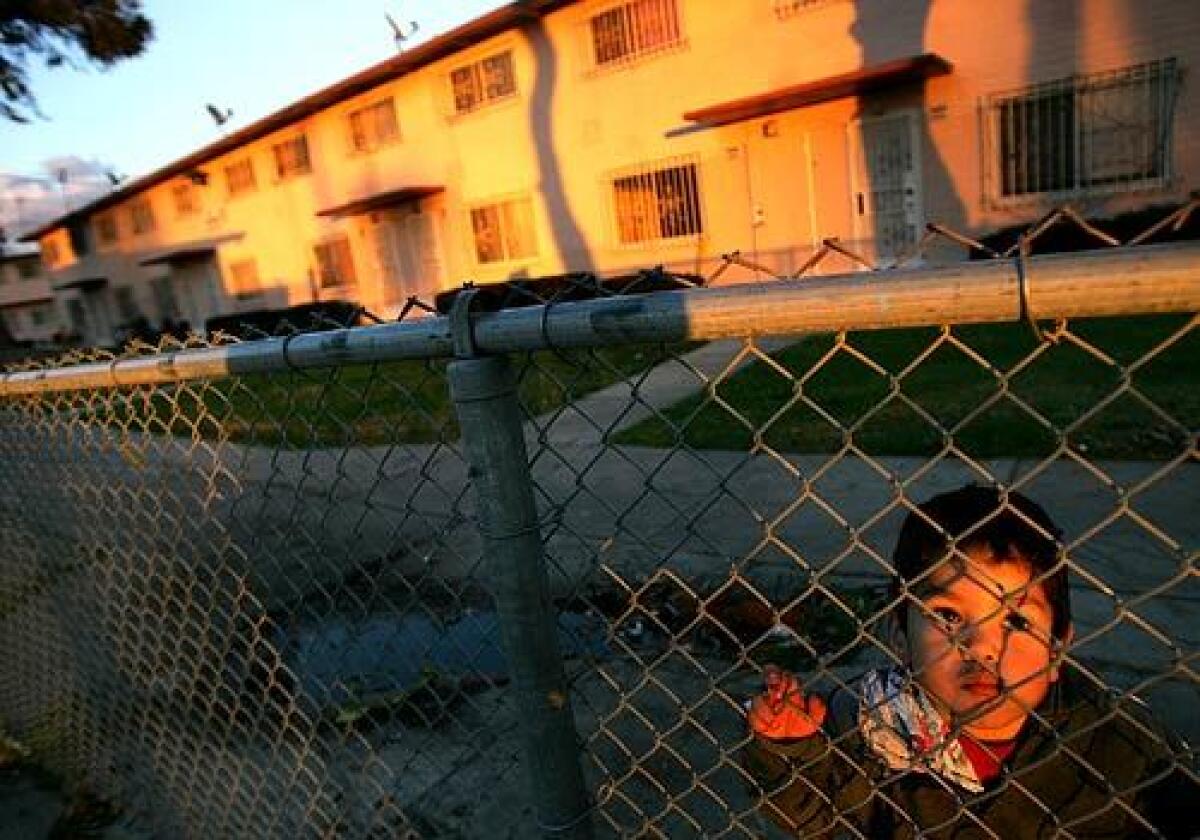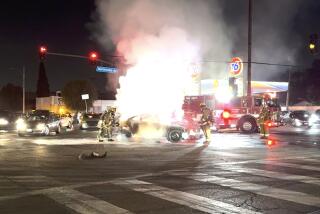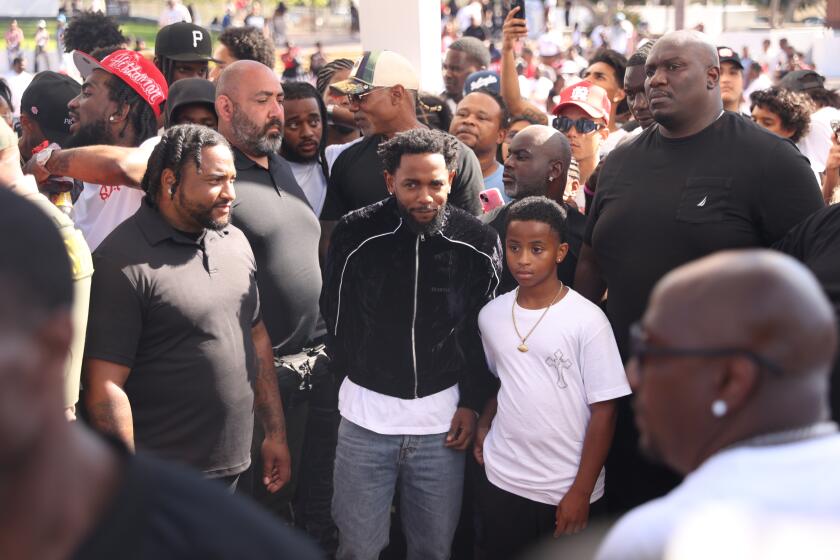Gang member gets 16 years for firebombing Black families’ homes
A leader of a Latino street gang was sentenced Tuesday to 16 years in prison for a 2014 firebombing that sought to drive Black families out of a Los Angeles housing project.
Carlos Hernandez, 36, admitted that he orchestrated the midnight assault on Black families living in Ramona Gardens, a mainly Latino public-housing complex in Boyle Heights.
Hernandez and seven other members of the Big Hazard gang smashed windows and tossed Molotov cocktails into four apartments where most of the residents — including 10 children — were sleeping. Hernandez pleaded guilty to five federal crimes in 2019.
U.S. District Court Judge Christina A. Snyder said she wanted to send a message that racial violence would not be accepted.
“This is not a time for any court to tolerate hate crimes,” she said at a sentencing conducted remotely by Zoom.
The sentencing of Hernandez brings to a close one of the most significant hate-crime prosecutions in recent years by the U.S. attorney’s office in Los Angeles. The seven other participants in the firebombing also have pleaded guilty to federal hate crimes and related offenses.
Mack Jenkins, the assistant U.S. attorney who oversees civil-rights prosecutions in Los Angeles, said that although the legal threshold for proving a crime was motivated by hatred of a person’s race, religion or other characteristic was high, communities needed to trust that the government would pursue such cases aggressively if there was sufficient evidence.
“It only takes one horrible act,” he said, “to reinvigorate those memories of when [racial] violence was more common.”
The sentencing comes amid a public debate over whether a white man who shot and killed eight people, including six women of Asian descent, at spas in the Atlanta area last week can be prosecuted for hate crimes.
Racial violence at Ramona Gardens goes back decades.

Built in 1941 alongside the 10 Freeway just east of downtown Los Angeles, it is the city’s oldest public housing project. It was long dominated by Big Hazard, or Hazard Grande, a gang with a history of killing, robbery, extortion, drug dealing, illegal gun sales and threats against Black residents of the project, prosecutors say.
The gang, based in Ramona Gardens, was named after nearby Hazard Park and counted 350 members, according to a government estimate in 2016. It is part of a network of Latino street gangs in the L.A. area controlled by the Mexican Mafia, or La Eme, a violent criminal organization that runs much of the drug trafficking inside California prisons, prosecutors say.
In 1992, firebombings gutted the apartments of two of the seven Black families then living in the 497-unit complex. Victims said fear of reprisals from gang members deterred their neighbors from helping investigators catch the assailants.
“Dear Salia, You are my best friend. I will never forget you . I wish you a happy life.”
In planning the 2014 assault, prosecutors say, Hernandez used a racial slur as he told seven fellow gang members that the firebombings would drive the Black residents out of the project.
The group gathered to make the Molotov cocktails on the afternoon of Mother’s Day. That night, they split into two groups of four to target Black families living in different sections of Ramona Gardens. Hernandez provided the others with a hammer and other tools to break windows and a lighter to ignite the Molotov cocktails.
Hernandez was armed with a semiautomatic handgun during the assault. After shattering some windows, he cut his right arm on broken glass as he was hurling a lighted firebomb into one of the units, court papers say. He bled so profusely that he sought treatment at White Memorial Hospital.
Black families lived in three of the four units that were firebombed. No one but Hernandez was seriously injured, according to prosecutors.
For the last few years, many residents of Ramona Gardens took pride in a remarkable turnaround.
Among other crimes, Hernandez pleaded guilty to: conspiracy to violate the Black residents’ civil rights, violent crime in aid of gang racketeering, and using explosives to commit a felony.
Prosecutors had recommended a 17-year sentence; his lawyer argued for 15. Since 2016, Hernandez has been serving a 17-year sentence on a state conviction for an armed robbery in Riverside County. Snyder ruled that he could serve his federal prison sentence concurrently.
The judge invited Hernandez to address the court but barred the public from monitoring that part of the sentencing. She gave no explanation for putting that portion of the hearing under seal.
After the public hearing resumed, Hernandez, wearing an orange prison uniform, asked Snyder to have him incarcerated in the western United States. She granted the request.
More to Read
Sign up for Essential California
The most important California stories and recommendations in your inbox every morning.
You may occasionally receive promotional content from the Los Angeles Times.












